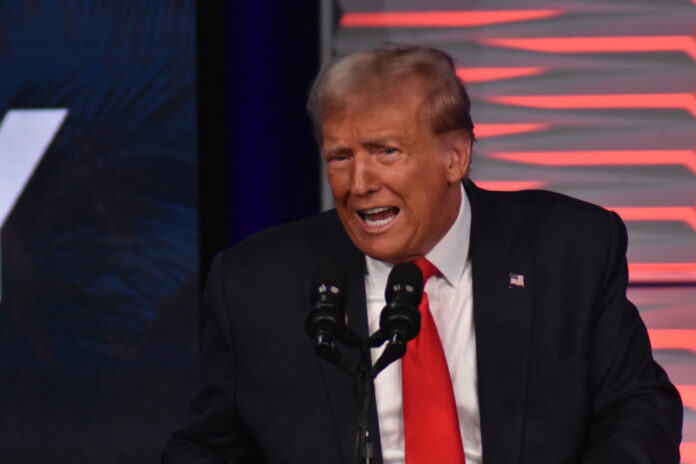In a landmark decision that reinforces the fundamental principles of democracy and the rule of law, the United States Supreme Court has unanimously ruled that states cannot unilaterally disqualify a presidential candidate from the ballot.
This ruling comes at a critical juncture in American politics, placing former President Donald Trump back into the heart of the electoral arena for the upcoming presidential race, and setting a precedent that could shape the contours of American democracy for generations to come.
A Unanimous Verdict for Democracy

The Supreme Court’s decision marks a pivotal moment in the ongoing tussle between state powers and federal oversight.
Colorado’s attempt to exclude Trump from the presidential ballot, citing his alleged incitement of the January 6, 2021, Capitol riot, was met with a resolute judicial rebuff.
The Court’s judgment emphasized that such a disqualification power rests solely with Congress, thereby underscoring the limitations of state authority over federal electoral matters.
This ruling does not just impact Colorado; it sends a clear message to other states that might have considered similar actions.
The Court’s decision effectively opens the door for Trump to compete in primaries across the nation, solidifying his standing as the front-runner for the Republican nomination and setting the stage for a potential electoral rematch with President Joe Biden.
Read More: Nikki Haley Defeats Trump in Washington DC Republican Primary With 62.9% of votes
Implications for the Republican Nomination and Beyond
Trump’s immediate response to the Supreme Court’s ruling was triumphant, proclaiming it a significant victory for America.
This sentiment echoes the former President’s unwavering ability to galvanize his base, turning legal and political challenges into rallying cries for his campaign. The ruling was promptly followed by a flurry of campaign activities, including fundraising appeals, signaling a campaign in full swing.
However, the decision has also been met with dissatisfaction from various quarters. Colorado Secretary of State Jena Griswold expressed disappointment, affirming a belief that states should have the authority to exclude candidates deemed to have violated their oath of office.
Meanwhile, advocacy groups have lamented the court’s refusal to tackle the underlying issues head-on, viewing it as a missed opportunity to address questions of constitutional eligibility head-on.
Also Read: Biden Administration Eyes Curbs on Chinese EVs Citing National Security, Data Risks
A Deep Dive into Constitutional Law

The heart of this case lies in the interpretation of the 14th Amendment, specifically Section 3, which was originally intended to prevent Civil War insurrectionists from holding office.
The Court’s ruling has now set a precedent for how this provision can be applied, or not applied, to federal candidates, placing the onus on Congress to act should they see fit.
Legal scholars have highlighted the decision’s broader implications for how we interpret constitutional accountability and enforcement. It underscores the complexities of balancing state interests with federal prerogatives, especially in an era marked by deep political divisions and polarization.
The ruling effectively shifts the battleground from the judiciary to the legislative arena, inviting Congress to define the parameters of eligibility and disqualification for federal office holders.
This move, however, is fraught with its own set of challenges due to the current climate of partisanship and gridlock within the legislative body.
The Road Ahead
As Super Tuesday looms, the Republican primary field, with Trump at its forefront, braces for an electoral contest that could determine much more than the nomination—it could be a litmus test for the state of American democracy.
The Supreme Court’s decision not only bolsters Trump’s 2024 ambitions but also sets a complex legal and political narrative in motion, the ripples of which will be felt across the nation’s electoral and judicial landscapes.
In essence, this ruling marks not an end but a beginning—a commencement of a new chapter in America’s ongoing dialogue between state rights, federal authority, and the very essence of democratic governance.
Read Next: Disney Joins Forces with Mukesh Ambani in $8.5bn Deal to Dominate India’s Streaming Market

Susan Paige is a prolific female writer known for her insightful analyses on business news, particularly focusing on the stock market, cryptocurrency, and related topics. With a keen eye for trends and a knack for distilling complex concepts into accessible pieces, she captivates readers with her expertise and clarity.

